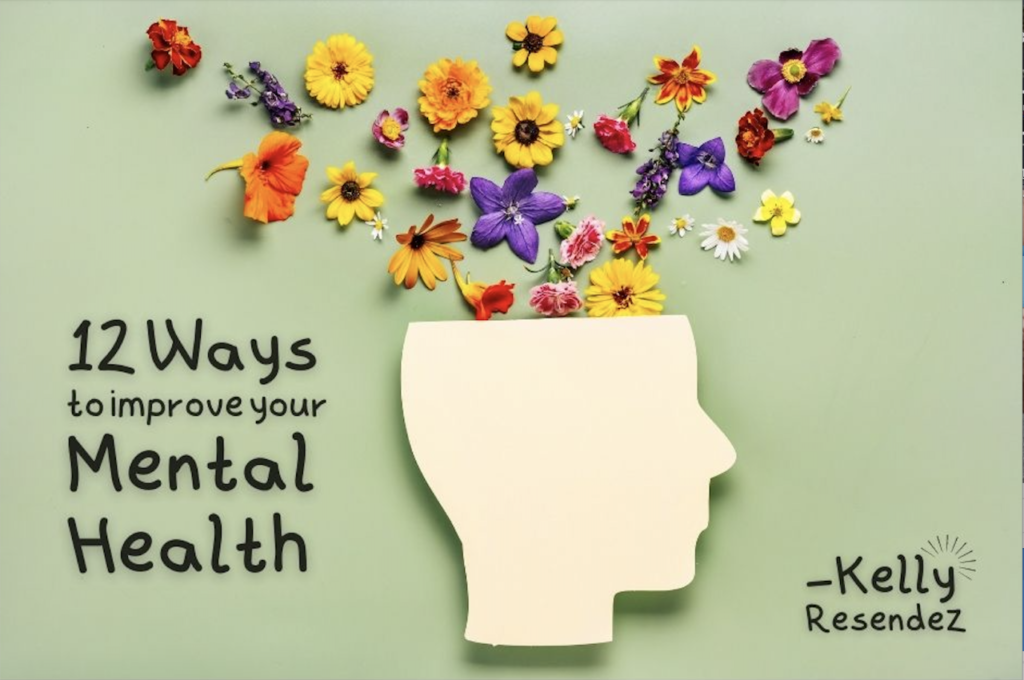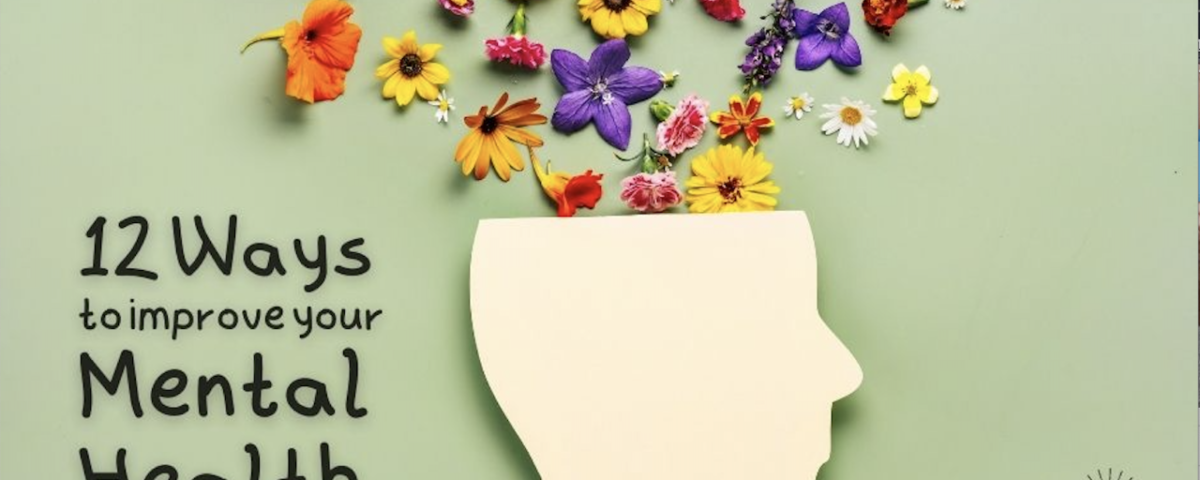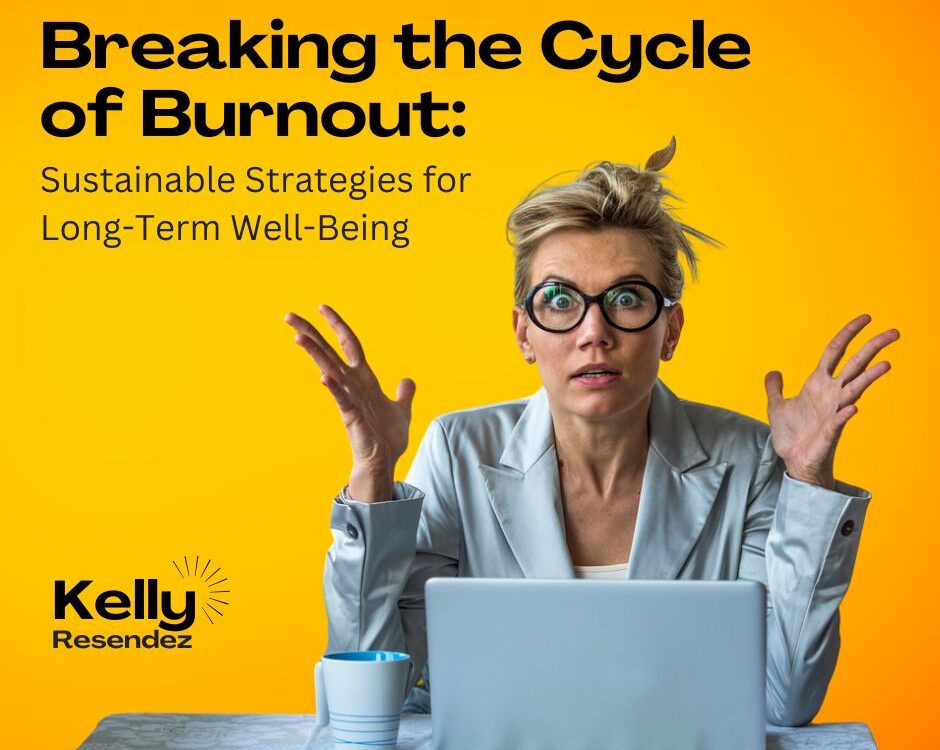
The 5 Keys to Breaking Bad Habits (and Setting Positive New Ones)
April 25, 2023
Summertime Energy Efficiency Tips
June 13, 2023
May is Mental Health Awareness Month, but I believe it’s a cause that we should highlight all year long. After all, mental health IS health!
So, here are my twelve tips to vastly improve your mental health, even in a short time.
Integrate these self-care strategies into your daily life and watch your emotional and mental state soar higher than ever!
1. Be Active & Exercise More
One of the most effective ways to improve your mental health is to get out, get moving, and exercise. Whether taking a long walk, hitting the gym, or participating in your favorite sport, exercise vastly benefits our emotions and health. And while you’ll feel the endorphin rush almost immediately when you start exercising, studies show that the mental health benefits are most significant when people stick with it for at least ten weeks.
The science:
Numerous studies prove the mental health benefits of exercise. One prominent study found that working out three to four times per week offered the best results for reducing the symptoms of depression. And while cardio, resistance training, or mixed training all help your mental state, a 2018 research project proved that lifting weights at least twice a week provided the most significant reduction in depression.
2. Eat a Healthy Diet
What you put in your stomach directly and significantly affects your brain, a link that’s now well documented. No surprise, all of that ultra-processed and unhealthy food we’re eating is having a profound negative effect on our stress, anxiety, depression, and mental health. And remember that just as important is what we’re drinking, so keep filling up that water bottle!
The science:
It turns out that the Mediterranean diet is one of the most beneficial for your mental health. In some studies, this type of diet (with plenty of fruits, vegetables, fish, healthy fats, and whole grains) led to a 33% drop in depression for participants. Meanwhile, other research has proven that those who ate more ultra-processed foods “were significantly more likely to report mild depression, more mentally unhealthy, and more anxious days.”
3. Scale Back on Social Media
When we talk about the increased prevalence of anxiety, depression, and mental illness, social media is one of the biggest culprits. Sadly, it’s affecting our children and youth even more profoundly, with higher rates of FOMO, negative mental health outcomes, and even suicide. But by making conscious decisions about when and how we use social media (or imposing those rules on your children), we can facilitate a quick turnaround and better mental health outcomes.
The science:
Psychologists recommend that you limit your social media usage to only 30 minutes per day. While that may sound impossibly low to some, consider that in one prominent study, those who spent more than two hours per day scrolling and clicking had a higher risk of anxiety and depression than those who limited their social media use.
4. Therapy
One of the absolute best ways to improve your mental health, gain a new perspective, and get over past trauma is by talking to a therapist. Sometimes, it can be intimidating or even a bit stigmatized when you walk into that therapist’s office (or login online) for the first time, but talking it out with a licensed professional will prove invaluable in boosting your mental health!
The science:
A comprehensive 50-study review by the American Psychological Association found that psychotherapy treats a wide array of mental health issues and behavioral problems. Cognitive Behavioral Therapy (CBT) is one of the most useful forms of therapy in treating anxiety and depression – often with more positive effects than medication!
5. Better Sleep Habits
A good night’s sleeps makes everything better, including your mood, anxiety level, and overall mental health. But many of us (most of us?) are working with a long-term sleep deficit, if not just really bad sleep habits. So, respect your sleep window, turn off the phone, drink some tea, and get some ZZZ’s to improve your mental state!
The science:
Studies show that getting enough REM sleep helps our brain process emotional information. Conversely, when we don’t get enough quality shut-eye, it impedes our ability to facilitate positive emotional content, including memories and thoughts.
6. Social Connection
Most people don’t realize that out of all of these factors, social connection may be the most important to our mental health. At our core, human beings are social animals, meant to be with others and part of the group. But isolation, loneliness, and a lack of socialization greatly inhibit mental wellness, as many experienced during the pandemic. So, find time to make friendships, be with others, and interact socially as much as possible.
The science:
A 2019 research paper found that “one of the fundamental reasons for depression is isolation, loneliness, and lack of social support.” In fact, strong social support is attributed to better mental health, including a 50% reduction in the risk of depression and anxiety.
7. Hot and Cold Therapy
In many cultures, hot or cold therapies have been around for hundreds of years, and they’re just gaining mainstream popularity in the U.S. again. Collectively referred to as hormesis, or a fleeting exposure to extreme conditions that elicit a positive physiological or psychological response, hot or cold therapies are two of the most common. That can be jumping in a spa or sauna, an ice bath, or simply taking a frigid shower, but the benefits include improved mental health.
The science:
Research shows that regular hot spa or sauna sessions have an antidepressant effect that lasts up to six weeks, while exposure to extreme cold (cryotherapy) is proven to reduce depression, improve vitality, and enhance the quality of sleep.
8. Practice Gratitude
Simply giving thanks is such a powerful tool, capable of changing and enhancing our joy and the very quality of our lives. Practicing gratitude in any form, such as meditation, writing in a journal, affirmations, or just thinking, “I’m so fortunate!” takes us off the hedonic treadmill of superficial pleasures and accomplishments, improving our mental health.
The science:
Research pinpoints the effectiveness of gratitude in our lives, such as one study that found that those who practiced gratitude exhibited 10% more self-reported happiness in their lives. Another study found that by writing letters of gratitude, participants exhibited better mental health than those who didn’t write letters – even after one to three months had passed!
9. A Growth Mindset
Is your mindset fixed or dynamic, open to growth? According to Dr. Carol Dweck, a growth mindset “is based on the belief that your basic qualities are things you can cultivate through your efforts.” When you see challenges as opportunities, negative criticism as room for self-improvement, and life’s ups and downs as part of the overall ride, your mental health is sure to be more resilient.
The science:
A 2022 study of more than 2,500 college students looked at their self-reported mental health condition compared to their mindset. The study concluded that those with a growth mindset were less likely to experience mental health issues than those with a fixed mindset.
10. Mindfulness & Meditation
Being fully in the moment without being pulled away by judgmental thoughts or distractions is a practice called mindfulness, and it’s often combined with meditation as an effective, consistent, and gentle way to improve mental health.
The science:
One prominent study revealed that participants who engaged in mindful meditation for eight weeks saw a 40% drop in depression and a 50% drop in anxiety.
11. Get Out in Nature
For many of us, our “happy place” is in nature, which almost instantly makes us feel better, physically and mentally. Taking a long walk, sitting on a park bench in the fall, or even getting a few rays during your work break can vastly improve your mood and outlook.
The science:
Studies show that people who spend more time outdoors and in nature report better positive mental health, which includes lower instances of depression.
12. Volunteer
One of the best ways to feel better is to help others feel better, and philanthropy or volunteerism allows us to do just that. Volunteering also is proven to improve our mental health in a variety of ways, from reducing anxiety and depression to increasing social connection and a sense of purpose.
The science:
A notable study found that people who volunteer regularly experience depression 20% less than those who don’t volunteer, with all other factors being equal.
***
Do you regularly practice some of these techniques and behaviors to boost your mental health?
Remember that you don’t have to wait until something is wrong or you’re feeling poorly before starting to invest in your mental health.
And if you need it, please reach out because you’re not in this alone and help is always available!
Sources:
https://mentalhealthcommission.ca/training/twm/
https://www.nurx.com/blog/5-science-based-ways-to-optimize-your-mental-health/
https://www.therapyden.com/blog/7-science-backed-ways-to-improve-your-mental-health



